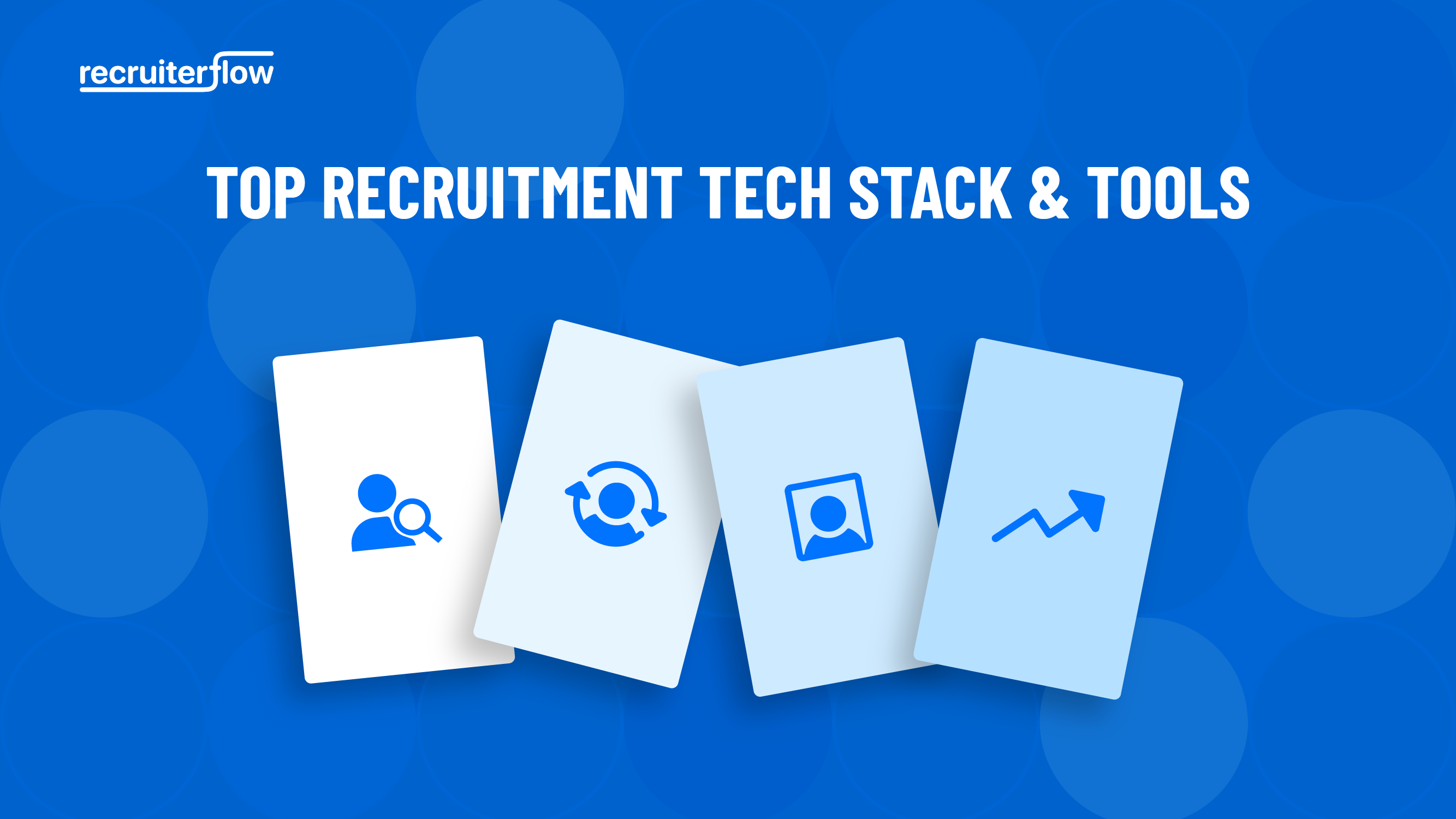
Contract Staffing: A Complete 2025 Guide for Agencies

Contract staffing is a powerful tool for building a resilient and successful staffing agency, but its very nature is one of both opportunity and unpredictability.
While it allows agencies to quickly meet critical and unique client needs and build a steady revenue stream, it also requires them to be constantly on their toes, manage a fluid talent pool, and navigate the complexities of short-term placements.
In this guide we will discover everything about contract staffing in 2025 — benefits, strategies, software, and best practices to help staffing agencies win more clients and grow faster.
What is Contract Staffing?
Contract staffing works as a hiring model where businesses employ people for a fixed duration. Companies use this approach to address short-term requirements, handle peak workloads, or fill in roles without committing to long-term employment.
Put simply, contract staffing links businesses with talented workers who are not permanent staff but play crucial roles for set periods. Contract staffing setup allows companies to adjust to specific needs while giving workers the chance to take on diverse, time-limited jobs.
To explain the range of services included in contract staffing, there are various types:
- Part-time Contract: Companies bring in workers to complete a specific number of hours each week or month. This works well when work schedules need flexibility.
- Fixed-term Contract: Employers hire individuals for a set time frame or until a particular task is completed. There are no obligations after the term ends.
- Agency Staff: Businesses rely on staffing agencies to find and handle contract workers.
- Project-Based Staffing: Employees are brought on board for a single project and let go once the work wraps up.
- Contract-to-Hire: Workers join as contractors first, with the chance for full-time employment based on how well they perform and fit in.
These options let businesses shape their teams based on changing needs, like how hard the work is, how long it’ll take, and what skills are required.
Here’s how various industries use contract staffing in the real world:
- Retail and E-Commerce: Companies like Amazon bring on thousands of seasonal workers through staffing agencies during busy shopping periods to handle the extra workload.
- Manufacturing: Businesses such as Siemens use temporary workers on short-term projects that need specific skills, which together with production management software helps them finish tasks faster.
- Technology: Tech startups and companies hire skilled contract workers for rare tasks, which gives their projects a boost in speed and flexibility.
- Healthcare and Pharma: To conduct research, run vaccination programs, or manage clinical trials, contract staffing provides much-needed adaptability.
Staffing agencies aim to provide clients with workforce solutions that are flexible, cost-efficient, and easy to adjust as needed. Staffing agencies take care of everything.
They source candidates, deal with employment paperwork, manage payroll, and ensure compliance. This allows their clients to focus on their main operations without having to worry about long-term HR responsibilities.
Benefits of Contract Staffing for Staffing Agencies
Contract staffing brings big advantages and opens up several opportunities. Here’s a closer look at what staffing agencies gain from using contract staffing.
1. Scalability and Flexibility
Staffing agencies can expand or reduce their talent pool depending on what their clients require, which makes contract staffing an invaluable tool.
When clients face seasonal work, unexpected projects, or sudden changes in the market, agencies step in with skilled professionals. They skip the lengthy steps involved in permanent hiring.
This approach helps agencies adapt fast and meet a range of client needs with ease.
2. Low Risk & High Speed Hiring
Staffing through contracts allows agencies to hire quickly. Contracts help keep a list of ready-to-work qualified candidates and make it easier for clients to fill urgent roles.
Also, temporary roles let clients try out workers before committing to permanent positions. This limits the chances of poor matches or costly errors.
3. Saving Money as a Key Advantage
Contract staffing helps client companies cut down on expenses because it skips costs like long-term benefits, insurance, and onboarding new hires. This money-saving approach makes it simple for staffing agencies to attract budget-minded clients who still need skilled workers.
Staffing agencies also align their services to meet financial expectations from clients easily.
4. Finding Specialized Skills
Contract staffing allows agencies to connect clients with experts who have rare or focused skills. These might be workers like AI specialists, developers for unique platforms, or marketing experts needed during busy times.
This expertise boosts the agency’s reputation and creates opportunities to work with more advanced clients like tech companies and startups.
5. Clients Experience Less Admin Work
One major benefit for clients is that staffing agencies take care of contracts, payroll, legal tasks, and compliance duties for contract workers. This eases the workload on the client’s HR team and makes agencies essential partners in managing staff.
Clients can handle their main business priorities, while agencies sort out employment details.
6. Stronger Client Ties and Business Stability
Contract staffing allows agencies to form deeper and more lasting connections with their clients.
Staffing agencies offer flexible and dependable options that match the shifting needs of businesses. This approach makes them trusted partners instead of just occasional service providers.
This brings steadier income and opens doors to more business than handling permanent hires.
You can also check our blog on Strategies to Increase Staffing Agency Sales.
Contract-to-Hire Staffing Explained
Contract-to-Hire staffing lets people join a company on a short-term contract that often lasts three to twelve months. If both the company and the person like how things are going, it can turn into a full-time job.
This approach works like a trial run. Companies get a chance to check how someone does their job and blends into the work environment. At the same time, workers can see if the role and workplace match what they’d want in the long run.
Here’s what happens in this type of setup:
- The company lists what the role needs and gets a staffing agency to find matching candidates.
- Candidates go through screening and interviews. Those picked start their temporary contract jobs.
- Employers watch how well these candidates perform, how they fit in, and how skilled they are during this time.
- If everything works out, the temporary role shifts into a permanent job. The staffing agency often takes care of payroll and legal matters during the contract period.
Why do staffing agencies favor this setup so much?
It gives companies flexibility and lowers the risks of hiring. Instead of committing to a full-time hire, they can first see the actual work and decide with more confidence.
To build longer-term client connections and place candidates in smarter ways, staffing agencies put their focus there. They handle things like hiring, payroll, and legal rules throughout the contract, and they reduce the paperwork load for the companies they serve.
Also read: Contingent Recruitment: A Comprehensive Guide for Agencies
How to Get Contracts as a Staffing Agency?
Winning contracts as a staffing agency might feel overwhelming in the beginning, but a solid plan can make all the difference. Below is a simple guide to help your agency gain contracts and develop long-term partnerships with clients.
1. Choose a Niche
Focus on picking a specific niche or field where your agency can shine, like IT, healthcare, manufacturing recruitment, or another area. Specializing in one field strengthens your proposals and sets you apart. Most clients like working with agencies that show expertise matching their hiring goals.
2. Build a Solid Online Presence
In the digital age, how people see you online matters a lot. Create a simple professional website that highlights what you do, your skills, client feedback, and success stories.
Make sure people can find your website by optimizing it with SEO techniques. Stay active on LinkedIn and other platforms where your audience hangs out to connect with them.
3. Research Your Competition
Figure out who your competitors are and what they bring to the table. Look into customer feedback, contract details, and pricing models to find ways to stand out.
Understanding the market gives you the tools to adjust your services and pricing in a way that grabs attention and attracts more clients.
4. Use Networking and Connections
Networking helps a lot in landing contracts. Go to job fairs, business events, industry meetups, or online groups where decision-makers gather.
Making real connections, whether online or face-to-face, can lead to fresh chances for contracts.
5. Try Cold Calling or Custom Pitches
Cold calls and emails can work if you do your homework beforehand. Look for possible clients and reach out with a specific pitch that talks about their challenges and shows how your agency can solve their staffing issues. Prove you get their business needs and have crafted solutions just for them.
6. Build Trust as a Talent Acquisition Partner
Look past filling roles. Shape your agency into a reliable partner by paying close attention to what clients need. Use insights driven by data to suggest flexible staffing solutions that fit their business plans. Earning this kind of trust can secure longer deals and generate referrals over time.
7. Take Advantage of Technology and Analytics
Use recruitment tools and analytics software to spot trends in the market and anticipate what clients might need when hiring in the future. Data-based strategies let you reach out to clients with customized staffing ideas for periods when demand might rise or skills could be missing.
8. Deliver Great Experiences to Candidates
Clients want agencies that are trusted for bringing not just skilled people but also those who match their company culture. Take the time to evaluate and connect with candidates so your agency earns a good name for being dependable and delivering quality.
9. Agree on Clear Contracts That Work for Both Sides
When talking to a new client, make sure to agree on contract terms that are simple, fair, and good for everyone. Spell out things like fees, timelines, and guarantees for candidates. Being upfront and clear in contract discussions helps create trust and ensures smooth teamwork later on.
10. Follow Up and Build Connections
Keep in contact after you land a contract. Communicate, listen to feedback, and adjust your services when needed. Satisfied clients return and may even refer you to others. This helps create new chances for your agency’s growth.
Also read: How to Grow Your Staffing Agency 10X in 2025
Role of Contract Staffing Software
If you’re in the staffing industry, you know how tricky it can be to oversee contract workers. Tracking candidate info, meeting compliance rules, and managing onboarding and payroll are just some of the challenges.
Contract staffing software has a role in solving these issues. Many agencies, those focused on contract work, now consider this technology essential to their success.
Contract staffing software simplifies and organizes the hiring process for temporary workers. Agencies use it to find, track, and manage contractors, all within one system.
Staffing automation replaces things like spreadsheets, emails, and manual tracking, which are often clunky and lead to mistakes that can cost money.
A major benefit is how adaptable it is. The software gives agencies and their clients the ability to increase or decrease their workforce based on changing projects or market trends.
When a project pops up and you need more workers or things slow down and the team needs to shrink, this tool makes those changes quicker and easier.
An important part of the process is keeping up with compliance. Agencies handle a lot of paperwork, like certifications, contracts, background checks, work permits, and other documents.
Contract staffing software simplifies this by:
- Keeping track of credentials.
- Sending reminders when renewals are coming up.
- Reducing the risk of compliance issues or fines.
This software also improves teamwork and communication. Tools for calls, messages, and video interviews let recruiters, managers, and contractors collaborate and stay in touch.
To save money, contract staffing software simplifies tasks that take a lot of time. By handling payroll invoicing, time tracking, and reports, it lowers admin costs and speeds up contractor payments.
Contract staffing software gives recruiters access to unique talent pools and advanced tools to search for skills. These tools help them hire the right people. Features using data analysis help agencies track contractor use, spending, and performance. Agencies can also use this data to make decisions faster.
Also read: 13 Best Staffing Agency Software in 2025
Best Practices for Staffing Agencies Offering Contract Staffing
Below are best practices to provide smooth, legal, and high-quality staffing services to keep clients and workers satisfied:
1. Define Roles and Expectations
Make sure you start every contract placement by explaining the job roles and duties. This ensures contract workers know what to do. Clear instructions reduce confusion and help them work better.
Also, making sure client needs are handled and on time keeps them satisfied.
2. Create Practical Budgets and Timelines for Contracts
Decide on budgets and how long work will go on, either for short-term projects or ongoing tasks. Setting clear expectations about money and time avoids problems and ensures everyone stays on the same page.
3. Stay Compliant with Laws and Regulations
Following the rules is a must. Confirm your agency knows the latest labor laws, tax rules, and employment standards for contract workers where you operate.
Use clear and consistent contracts with legal terms. Include details about confidentiality, ending contracts, and renewals to reduce potential risks.
4. Simplify Onboarding and Training
Make sure even temporary staff feel included and ready to do their job. A clear onboarding process with proper training can make all the difference, improve how fast they work, and keep clients satisfied.
5. Keep Communication Honest and Regular
Talk often with both your clients and contract workers. Update clients about progress or problems and check in with your temporary staff to solve any issues. Open communication builds trust and avoids misunderstandings.
6. Set Clear Performance Goals
Create specific KPIs for contract positions. This allows for fair performance reviews, meaningful feedback, and clear reasons to either renew or end contracts based on the data.
7. Plan a Clean Exit in Advance
Every contract comes to an end. Make sure to organize a smooth handover of work, share any needed knowledge, and finish any paperwork to ensure things flow well when you’re done. This helps the client stay on track and keeps your agency on good terms with them.
8. Use Tech to Simplify Work
Rely on staffing software to track candidates, run payroll, keep up with compliance, and handle reporting. Tools like these cut down on mistakes, save effort, and make contract staffing run more efficiently overall, creating streamlined operations that reduce delays and improve accuracy.
9. Focus on Building Client Connections
Don’t just aim for quick placements. Dig into what your client’s goals are and understand their hiring struggles. By doing this, you can become a trusted partner and recommend staffing solutions that bring actual benefits.
10. Prioritize Candidate Experience
Show respect to contract workers by offering timely payments and necessary support. When workers have a good experience, they stay loyal and recommend others. This helps your agency attract more skilled workers in the long run.
Conclusion
Contract staffing offers staffing agencies a smart way to provide flexible and budget-friendly workforce solutions. Success comes from forming strong relationships and staying flexible in a challenging market.
To help your agency start off right, we’ve created an easy-to-use contract template specifically for staffing agencies. It’s a useful tool to save your time and simplify contract staffing agreements.
You can download your free staffing agency contract template by clicking on the image below.
Recruitment

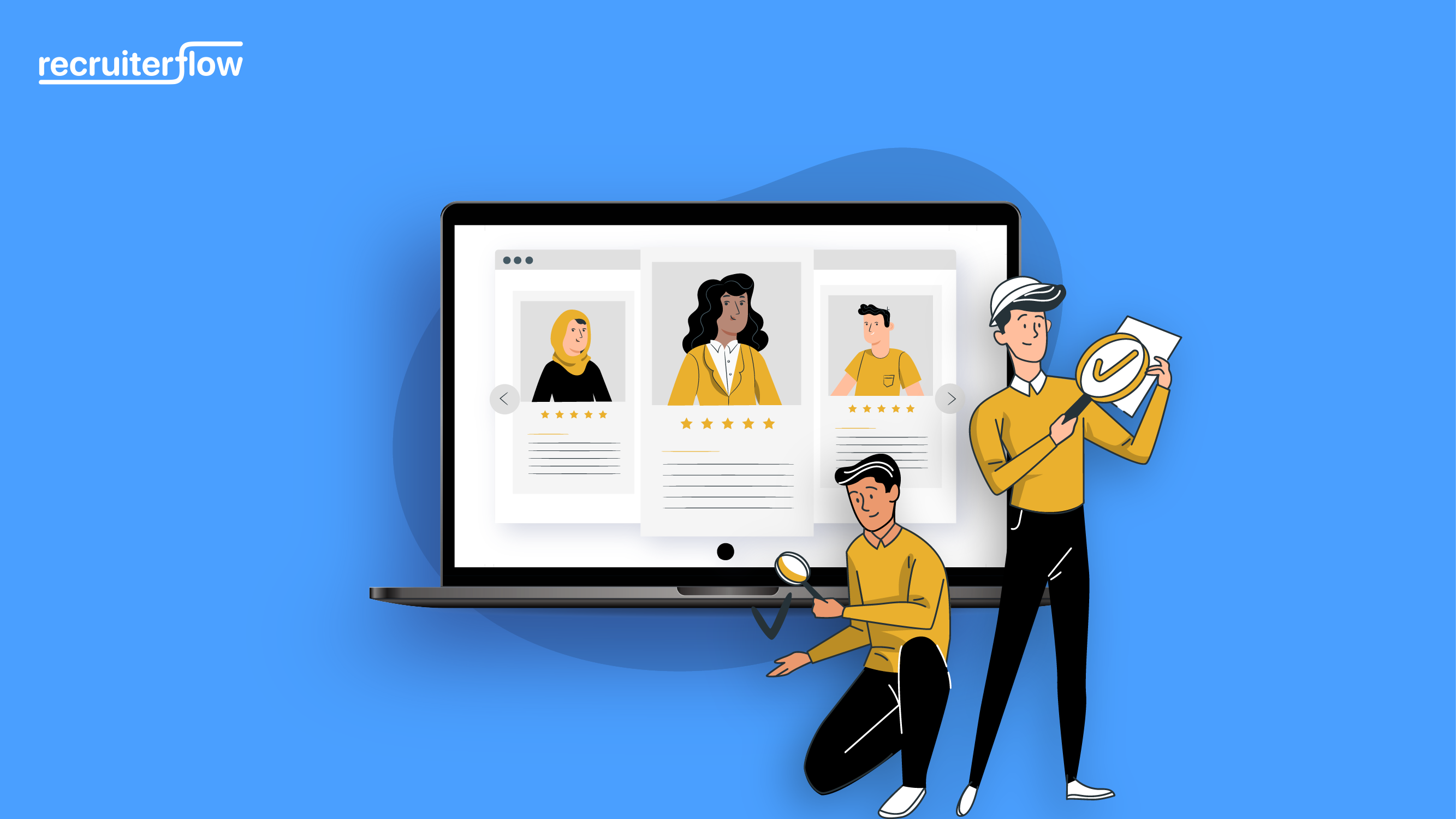
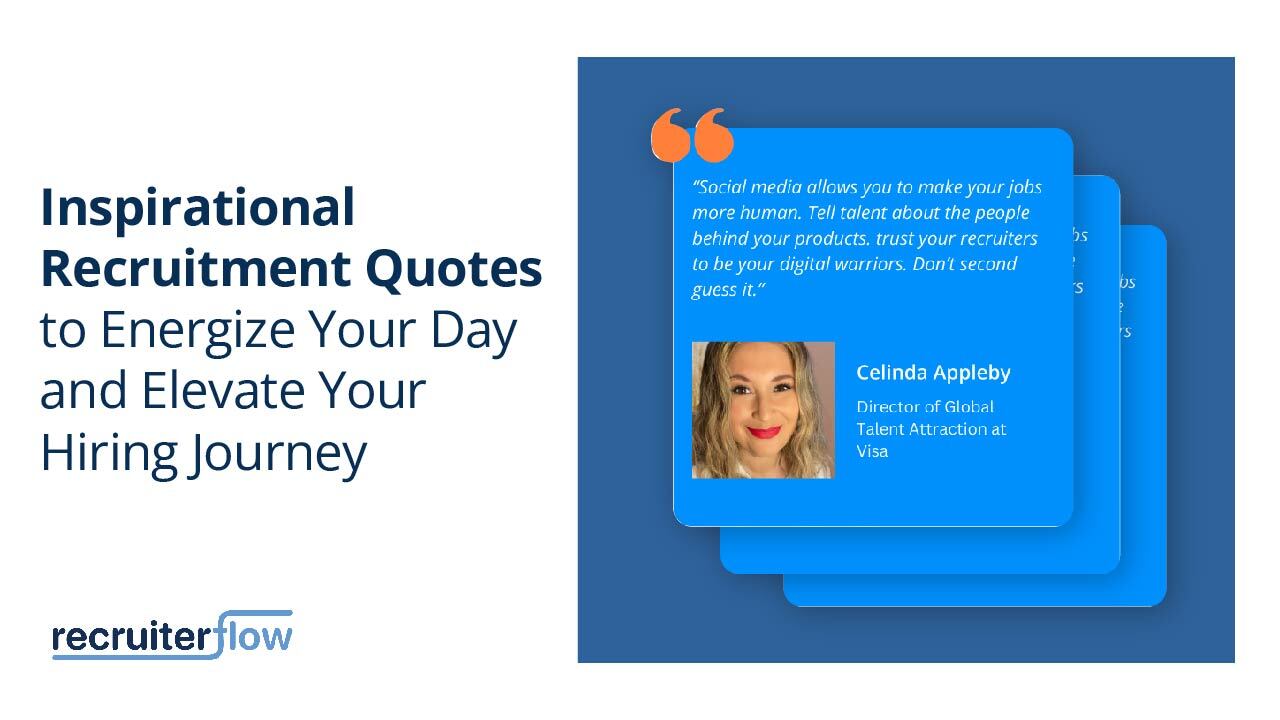
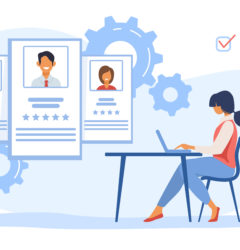

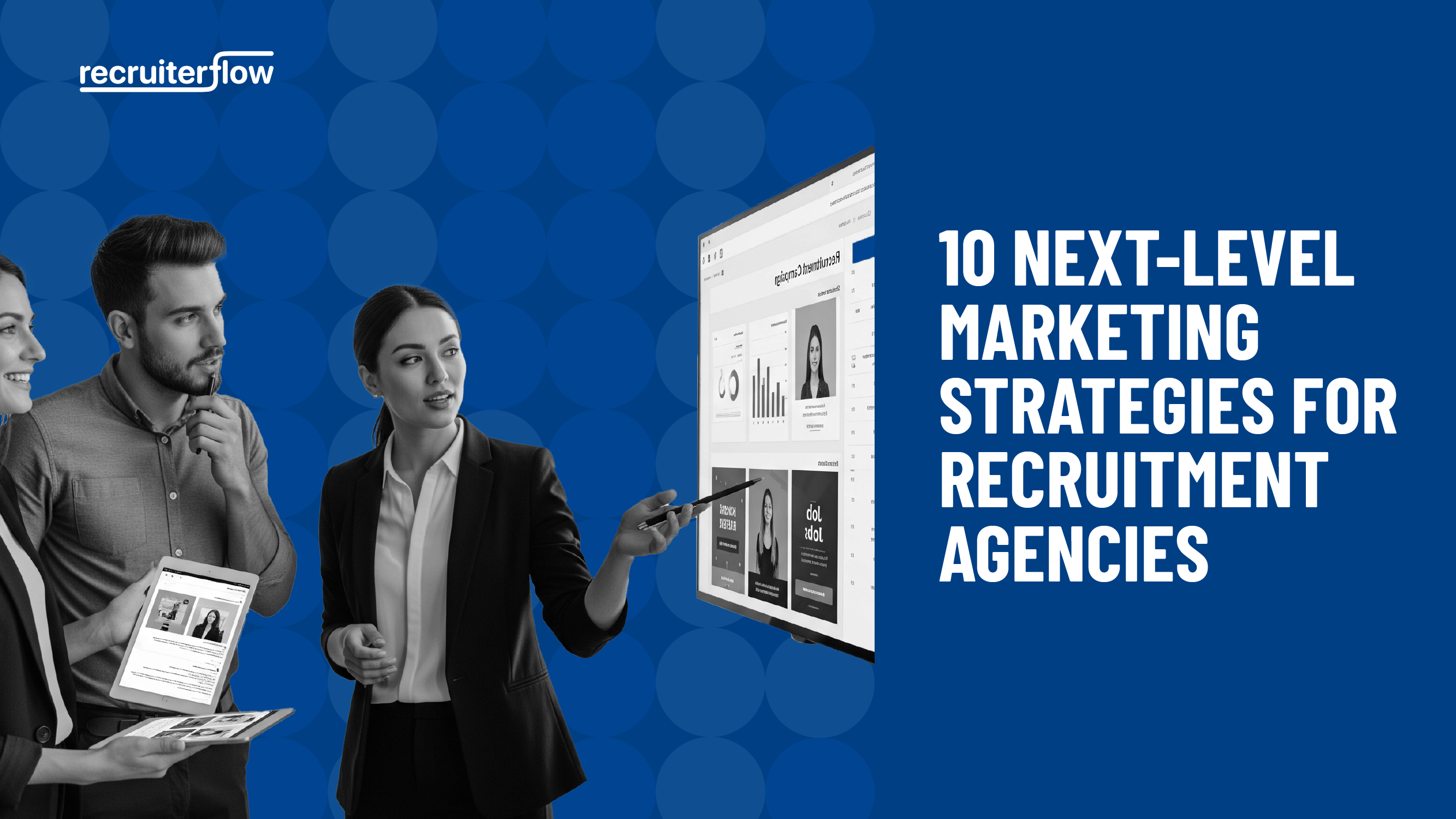

Abhishek Sharma